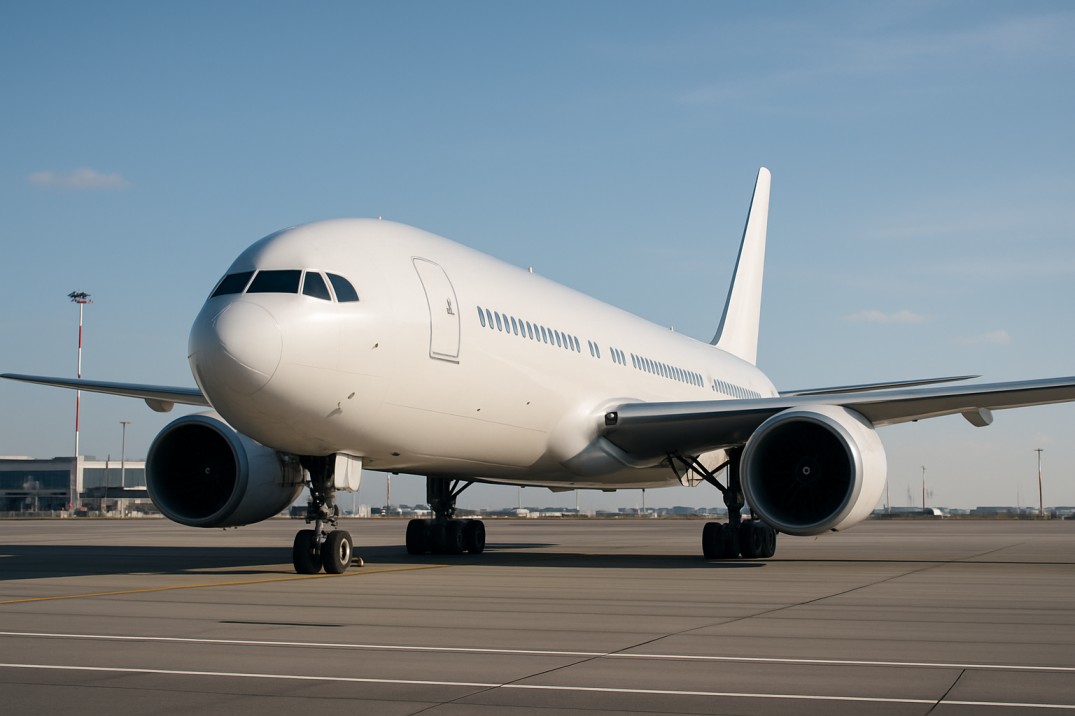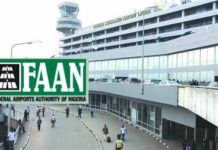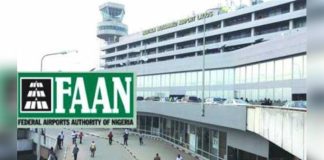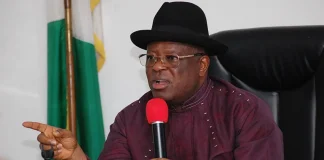🌿 Ruzu Non-Alcoholic Herbal Bitters
Ruzu Non-Alcoholic Herbal Bitters is a natural health supplement specially formulated to:
- ✅ Promote general wellness
- ✅ Detoxify the body
- ✅ Support the treatment of various ailments
Made from a powerful blend of 100% organic and medicinal herbs, Ruzu is completely alcohol-free, making it ideal for:
- 👪 All age groups
- 🌱 Health-conscious individuals
- 🌿 Anyone seeking non-alcoholic herbal remedies
Whether you're looking to boost your vitality, cleanse your system, or support healing the natural way, Ruzu Bitters offers a trusted herbal solution.
The usual culprits when airline ticket prices rise include shifting operational expenses, fluctuating foreign exchange, and Jet A1 charges. However, the ever-growing network of taxes imposed by the government is another increasingly prominent offender in Nigeria today.
The Nigeria Civil Aviation Authority (NCAA) has informed airlines that it would start charging an extra $11.50 per international ticket for the Advance Passenger Information System (APIS) starting on December 1, 2025.
According to the agency, the issuing carrier would collect and send the tax at the time of sale. The new fee is merely the most recent addition to a lengthy series of taxes and surcharges that, for many travelers, transform a headline fare into something quite different when they check out.
Taken as a whole, the ticket taxes are incredible. Nowadays, the typical foreign visitor to or from Nigeria must deal with a plethora of mandatory fees, which frequently include:
The Federal Airports Authority of Nigeria (FAAN) levies the Passenger Service Charge (PSC), which is typically stated at $100 for each international passenger from non-West African nations or $80 for those from West African nations.
Current NCAA security fee: Prior to the APIS hike, this long-standing security fee was typically quoted as $20 per international ticket.
The Ticket Sales Charge (TSC) is a percentage levy that is also collected from passengers and is around 5% of the ticket value.
The NCAA will impose a $11.50 APIS fee starting on December 1, 2025.
When service fees, airline surcharges, and foreign exchange-driven rate rises are taken into account, independent analysts estimate that the total cost of a ticket for a Nigerian citizen traveling abroad can approach—and frequently surpass—$150. With regard to taxed aviation travel, Nigeria is among the most expensive countries in Africa.
The APIS levy has been presented by the NCAA as a security and border management project. According to the agency, the system’s data will be utilized to pre-screen travelers and develop a single-window approach for airport agencies. The levy is meant to serve as a cost-recovery mechanism for the system’s operation and upkeep, according to the authority. The 20-year levy is planned.
The accountability and the math create severe concerns even with that justification. Several outlets calculated that the NCAA could earn between $46 and $49 million annually from the APIS levy using pre-existing passenger traffic data. This stream would add up to almost $1 billion over a 20-year period (estimates typically range from $989 million to $1.0 billion depending on exchange-rate assumptions). These amounts are enormous, dwarfing many single-year allocations frequently discussed in budgeting for the aviation industry.
It spent several hours at Murtala Muhammad International Airport in Lagos, where it spoke with passengers about the practical implications of the additional fee. Their voices express the frustration and confusion that many people who already have limited travel funds feel:
A young man in line to check in said, “I’m traveling for my sister’s graduation.” “That additional $11.50 may not seem like much, but it turns into a second ticket when you factor in the PSC and airport taxes.” It is not just.
“We pay VAT, ticket charges, security levies – and now this,” said a businesswoman traveling to London. You feel as though you are being taxed just for being alive.
“Pensioners travel on small budgets,” stated an elderly couple returning from vacation. We had to cancel once due to airfare rises; these taxes are turning travel into a luxury.
“If prices keep rising, young people will stop going overseas for study or work visits,” a student stated plainly while holding one backpack. This is a shortsighted move.
These intimate photos highlight the fact that the discussion is social and economic in addition to budgetary. Increased ticket costs run the danger of decreasing outbound travel, rerouting transit traffic to other West African hubs, and putting pressure on airlines that are already struggling to make ends meet. Stacked taxes reduce competition and may encourage travelers to take flights through neighboring nations with lower taxes, according to a number of airlines and industry representatives.
The main issue is accountability, which goes beyond the burden on travelers. For what is essentially a cost-recovery mechanism, the NCAA has set the levy to run for 20 years, which is a significant time frame.
It asked the regulator how the monies will be ring-fenced. Which audit, governance, and public reporting systems will direct the expenditures? Will the charge be evaluated on a regular basis in relation to the number of passengers and the real operating costs of APIS? For the system, who will be in charge of project procurement? There are still no answers to those questions. At the time of writing, no response had been received from the NCAA on the request for comment.
There are other, more specific questions that call for clear responses. As an instance: Both overlap and duplication How would APIS relate to the duties of the Nigeria Immigration Service (NIS) and other organizations, as well as the current security levies? If numerous agencies examine passenger data, is the goal really to simplify or is it just to collect different fees?
Equity as well as exceptions According to the NCAA memo, newborns, diplomats, and crew are excluded. Will there be more relief categories (students, Nigerians in the diaspora traveling for medical reasons), and how will exemptions be applied to prevent abuse?
Economic impact modeling: What independent analysis was employed to evaluate the impact of the fee on airline routing decisions, passenger demand, and the larger tourism and expatriate remittance sectors?
Transparency across the 20-year term: Detailed, continuous public reporting is necessary for a two-decade collecting plan, not merely a single letter. Will annual receipts, audited accounts, and project updates be made public by the NCAA?
Both industry associations and consumers have argued that additional taxes should only be implemented following extensive stakeholder consultations, explicit transparency safeguards, and observable increases in efficiency.
Speaking to other media, a number of airline executives emphasized that general tariffs are blunt tools that might backfire, penalizing regular travelers and diverting traffic from nearby airports.
In theory, the NCAA’s stated objectives—a single-window data system and enhanced border security—are not debatable. APIS or comparable systems are used in numerous nations. However, whether or not revenue collection is subject to independent oversight and whether or not individuals can perceive the value for the money serve as the benchmarks for public acceptability.
This episode will be evaluated based on whether it replicates or deviates from Nigeria’s aviation industry’s historical struggles with opaque project funding and poor infrastructure follow-up.
Travelers will continue to experience pressure at the ticket booth for the time being. When paired with the PSC, TSC, and other fees, the NCAA’s new $11.50 levy is minor on its own but significant overall, which helps to explain why the actual cost of flying from Nigeria is frequently more than many travelers anticipate.
The solution is straightforward in theory but difficult in practice if the regulator wants the public to trust a 20-year revenue plan: publish the data, open the books, respond to the inquiries, and repeatedly demonstrate how the funds enhance security and service rather than just filling accounts. Until then, the fee will appear more like an unseen travel tax than a security improvement.
















